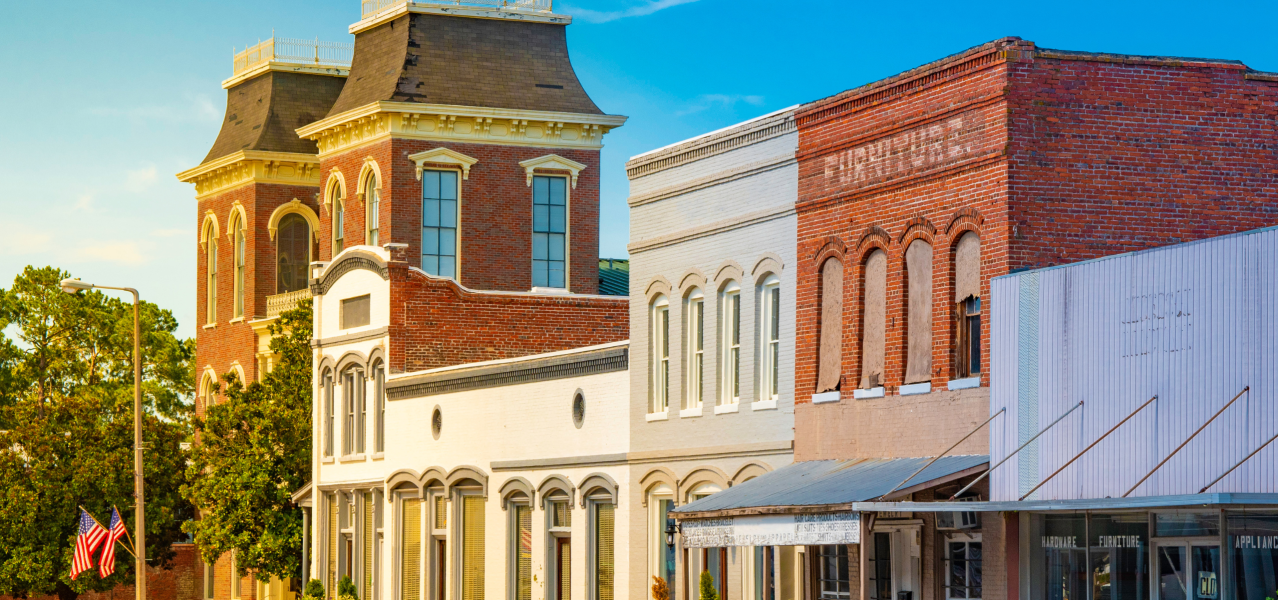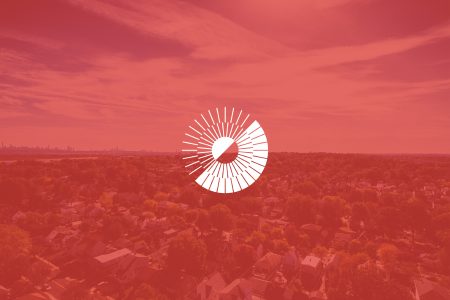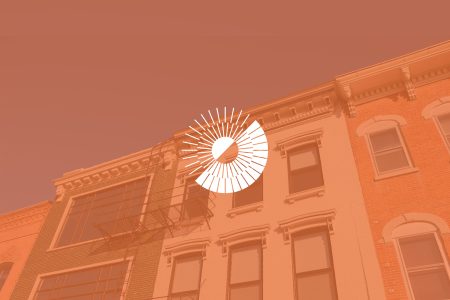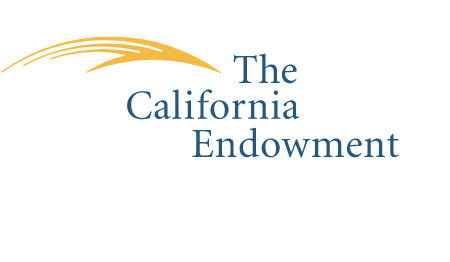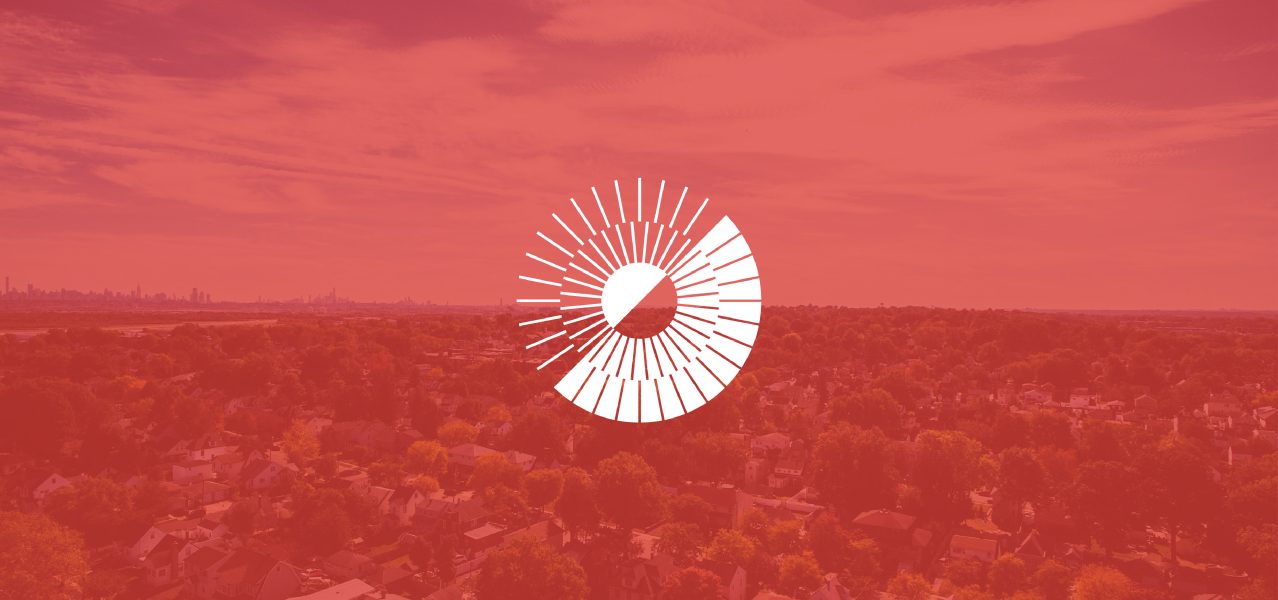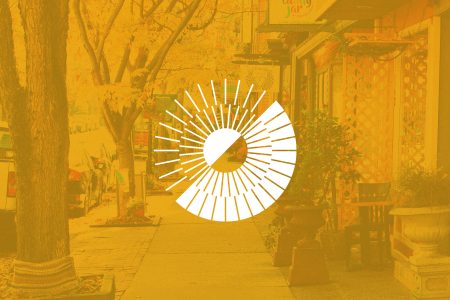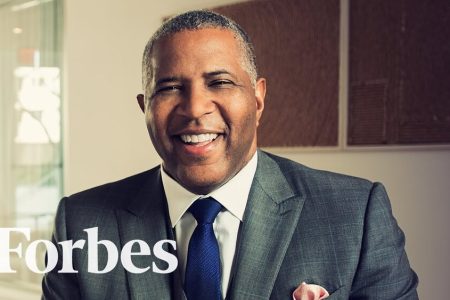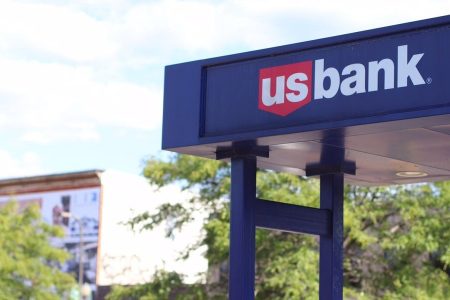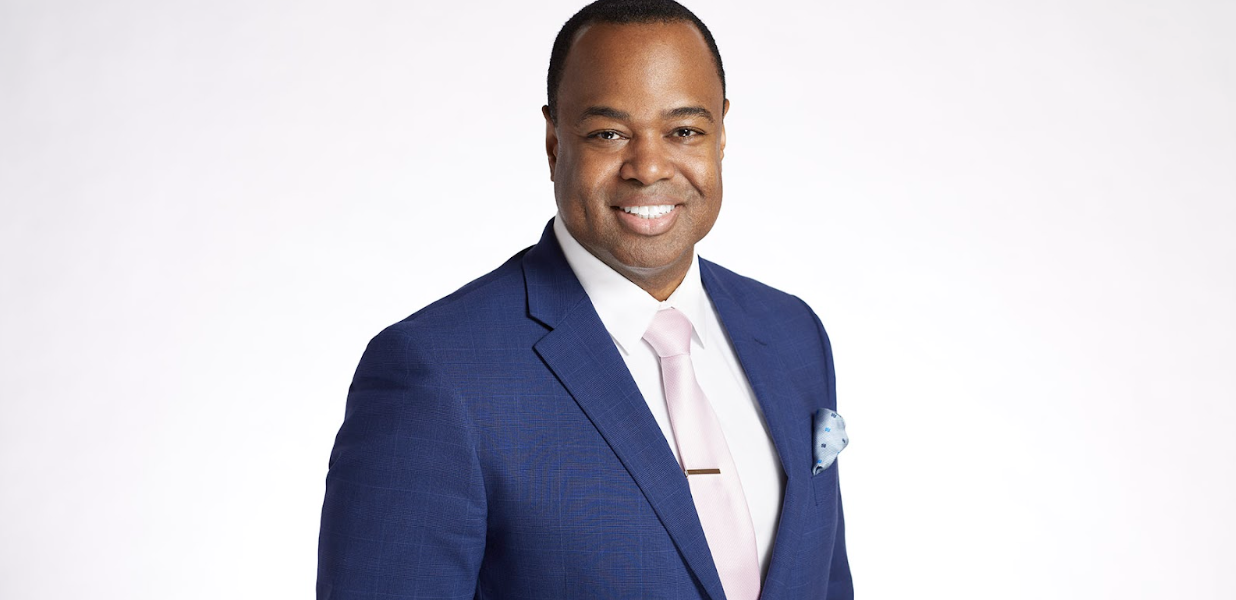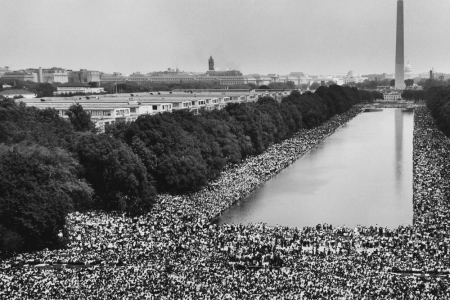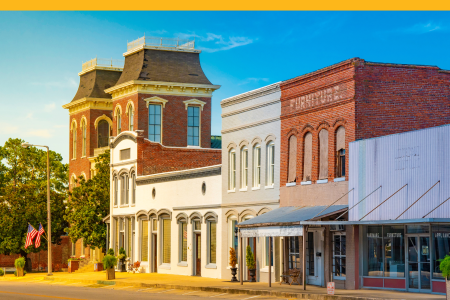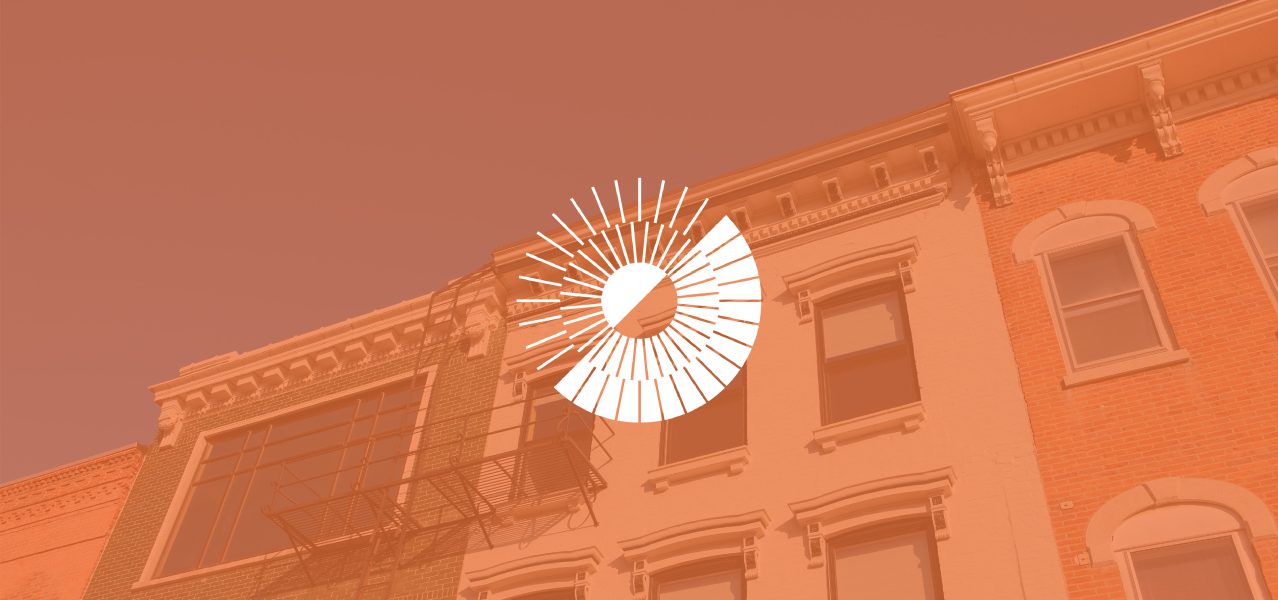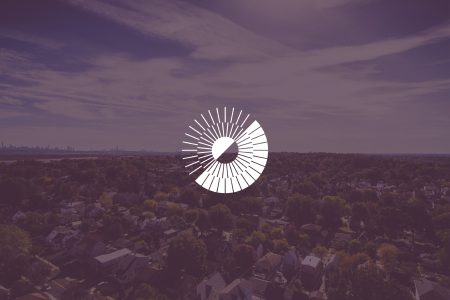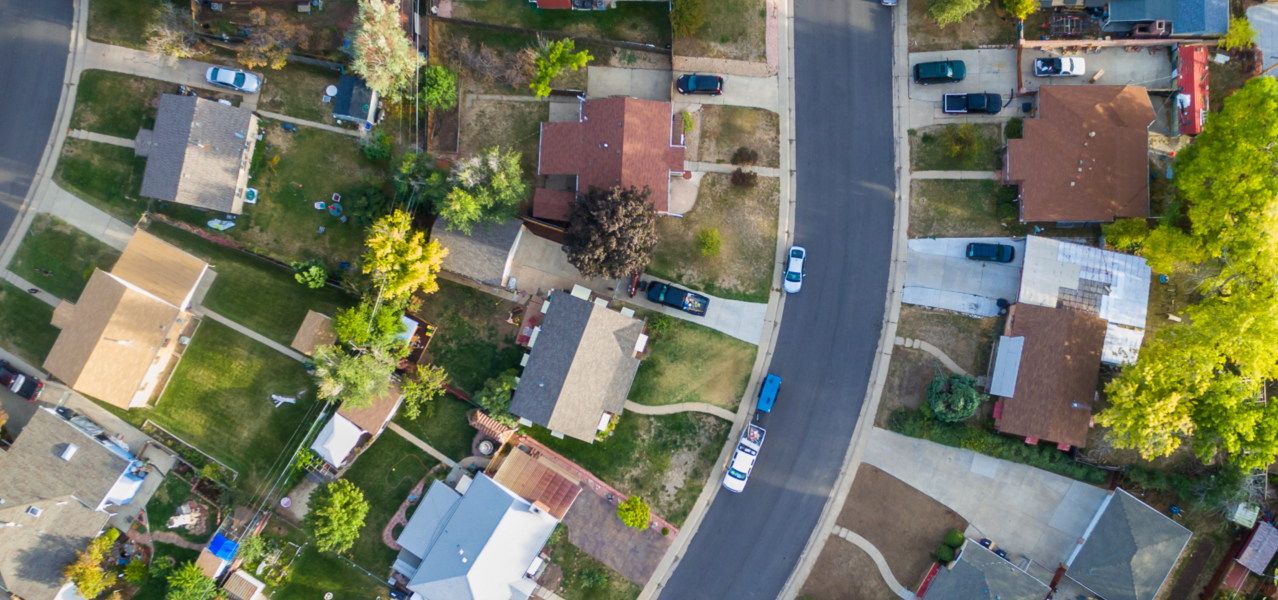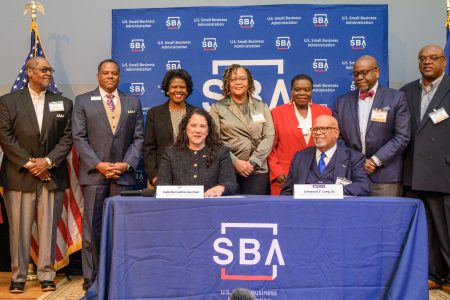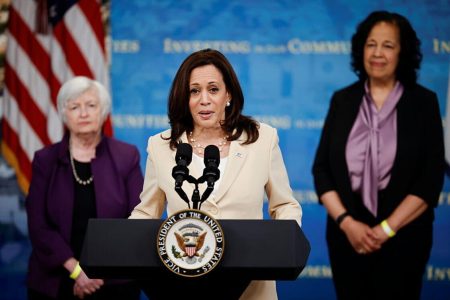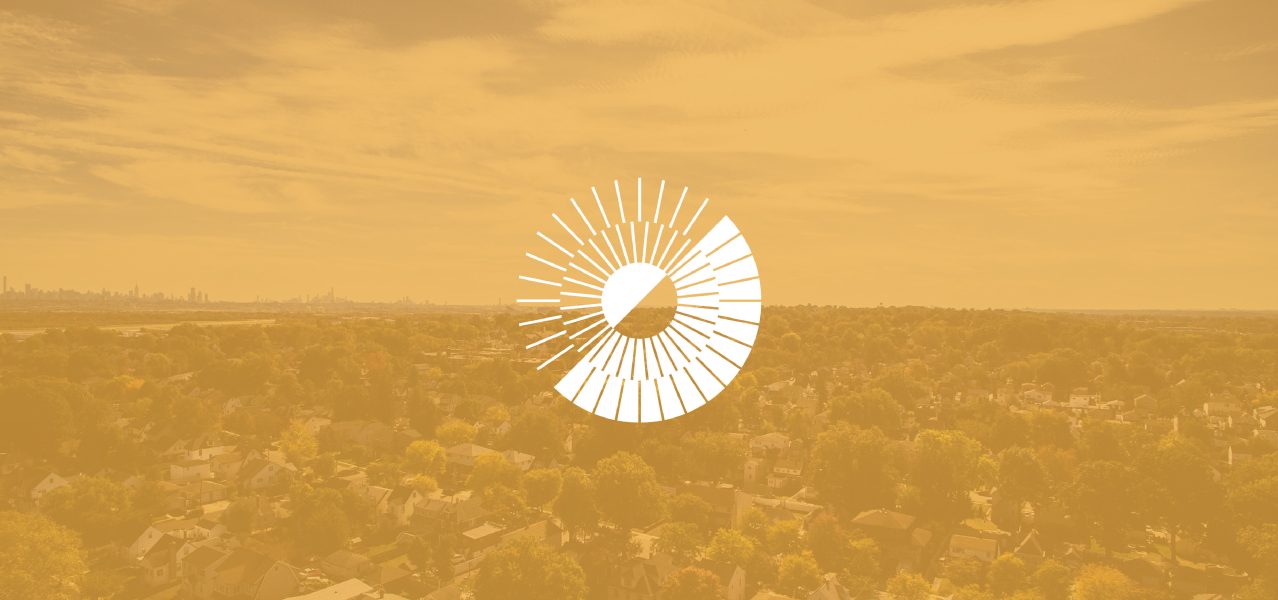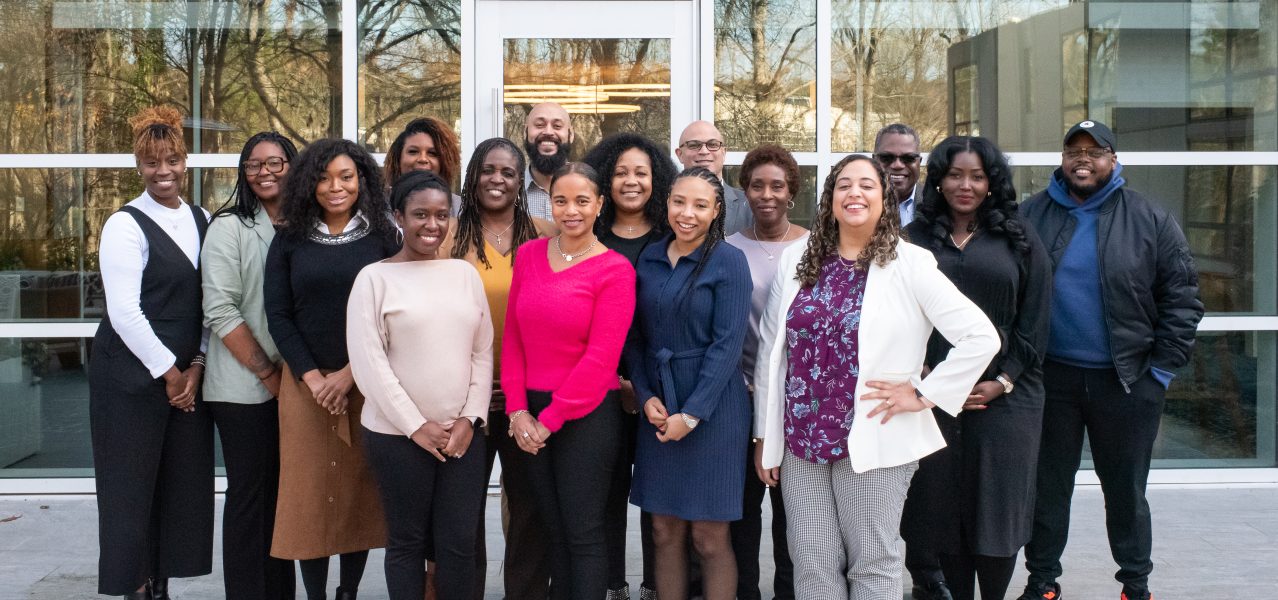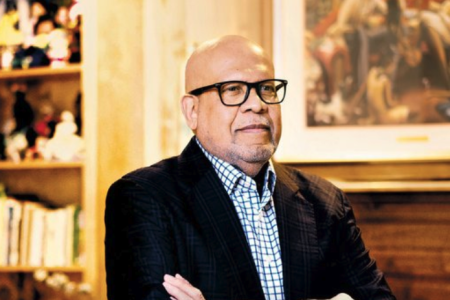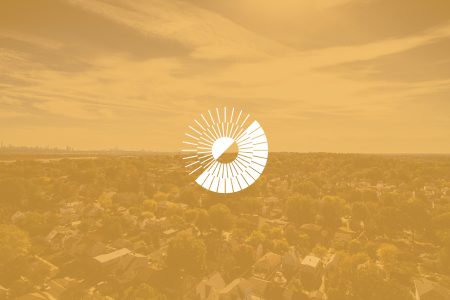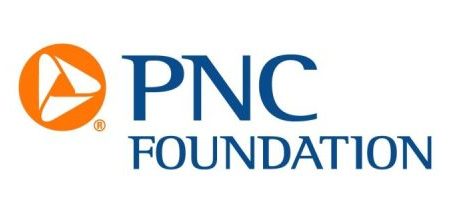A Substantial Conversation with Michael Jeans, CEO of Go Green Energy Fund and Growth Opportunity Partners, the country’s first African American-led green bank.
Substantial Magazine continues to take a deeper dive into the world of Black-Community Development Financial Institutions (CDFIs) and the important role these unique financial institutions play in serving communities across the nation. We got the opportunity to sit down in an exclusive interview with Michael Jeans, Associate Member of the African American Alliance of CDFI CEOs, to talk not only CDFIs but Green Banks and the unique role these institutions play in ensuring financial sustainability and the sustainability of our planet.
So, what is a Green Bank? A green bank is a mission-driven financial institution that uses innovative financing techniques and market development tools in partnership with the private sector to accelerate deployment of clean energy technologies. Green banks also seek to reduce energy costs for ratepayers, stimulate private sector investment and economic activity, and expedite the transition to a low-carbon economy.
So why are Green Banks important? States have created or helped to fund green banks that lend money to homeowners and businesses for energy-saving and climate projects. In recent news regarding the passing of the Greenhouse Gas Reduction Fund (GGRF), states have even more reason to be investing in these unique financial institutions.
On February 14, 2023, the EPA reported initial guidance on the design of the GGRF program.
Here’s a quick Substantial recap:
- There was an amendment to the Clean Air Act to provide for a GGRF to be administered by the U.S. Environmental Protection Agency (EPA).
- The provision appropriated $27 billion to the EPA for FY2022, out of any money in the Treasury not otherwise appropriated, to remain available until September 30, 2024, to make grants, on a competitive basis, as follows: $7.0 billion to states, municipalities, tribal governments, and eligible recipients for the purposes of providing grants, loans, or other forms of financial assistance, as well as technical assistance, to enable low-income and disadvantaged communities to deploy or benefit from zero-emission technologies; $11.97 billion to eligible recipients for the purpose of providing financial and technical assistance for qualified projects; $8.0 billion to eligible recipients for the purpose of providing financial and technical assistance for qualified projects in low-income and disadvantaged communities; and $30.0 million for agency administrative costs.
- The Community Builders of Color Coalition—a national coalition of 16 BIPOC-led organizations led by the African American Alliance of CDFI CEOs pushed to ensure that minority communities directly benefit from the GHGRF. The coalition has advocated for equity in all aspects of the fund’s implementation, and for at least 40% of the money it awards to go to Black and brown-led CDFIs, MDIs, Credit Unions and mission-focused financial institutions.
Now that you’re up to speed on what Green Banks are and how important these unique financial institutions are to our communities, take a moment and read our interview with Michael Jeans, founder of the first African American-led green bank in the country.
Podcast Story Clips
Substantial: Tell us about what led you to create Growth Opportunity Partners and establish the first African American-led green bank?
Michael: I started my career in accounting and have a long banking career. I realized that most of my clients, if not all, were doing pretty well each step of the way, and they had assets. And to be clear, I supported them in that, and I applauded them in that. However I recognized there was a slice of the population I could not get to, given the focus nature of my work. There was a segment of the population that needed access to the same data, the same information, the same guidance and coaching. So I had an opportunity to work with a community bank. While I was engaged in this work, I saw some things worked really well, and there were some things we could do differently under a different regulatory environment and with different stakeholders.
From there, I developed Growth Opportunity Partners, which allowed me to aggregate those earlier professional stops. We take the same level of professionalism, the same quality of information and data and get it to the folks who need it, who don’t typically have access to it in a timely manner. What’s also important to note is that we walk alongside them as they apply and implement it. Doing this work is an opportunity for me to own the outcome. In fact, I can no longer say, I wish we could do X, but we can’t because of policy. If that’s the reality today, it’s because I’ve created the obstacle, and our work is about removing obstacles.
When it comes to the Go Green Fund, it is the first African American-led green bank in the country under the umbrella of the consortium of green banks. Growth Opps, in collaboration with Coalition for Green Capital (CGC) has established a Green Bank model that can deploy mission-driven capital to support small-scale commercial and industrial solar project development. What’s Important to note is that our work ensures that green banks focus on bringing access to clean energy solutions and clean energy operations to the entire community, not just certain parts of the community.
Substantial: Can you speak to how important the work of the Community Builders of Color Coalition is to ensuring that dollars be distributed in an inclusive way to Black and brown-led CDFIs, MDIs, and mission-focused financial institutions?
Michael: The Community Builders of Color Coalition is a critical voice and apparatus in this process. I come to that group having worked with the African American Alliance of CDFI CEOs, and the partners in the coalition. We not only play a geographic role—given together, we cover a broad landscape of our communities and our mission-based target markets, but we also have lived experiences that are relevant in the communities that we serve. These lived experiences can often be discounted in other rooms and other places. Not only do we have the geographic footprint and the lived experiences, but we also know how to deploy capital; it’s what we do.
What is also important is that we have credit policies and other guidelines that allow us to do this creatively. These policies and guidelines allow us to serve our community in a way that it performs and it improves our clients’ living conditions and financial conditions.
Regarding the Greenhouse Gas Reduction Fund, we consider this a decisive decade in climate. The United States has passed the most significant climate legislation that we’ve seen in the history of this country. While we are not the first globally to pass legislation and act on climate, this is a historic moment for us. This is also why we must be diligent about how and where this capital is deployed. This particular exercise, this phase that we’re in, as it relates to the greenhouse gas reduction fund and equitable deployment, is similar to other innovative moments in our country’s history and perhaps the world’s history.
Whether we look back at the automobile industry, the rise of computers, or Telecom, it was these moments, these innovations, that changed and transformed how we all live. Depending on who was given information about these emerging markets and were able to seize opportunities, well, that determined who thrived.
So if we don’t make these investments in our cities, if we don’t make these investments in our major metropolitan cores, the inner city, if you will, then I worry that the benefit, when it does arise, when it does arrive will be delayed, diluted, and the opportunity for equity will have passed. It will be more expensive, maybe not the economics of the model, because over time, innovation becomes less expensive—however we’ll be buying into appreciated assets at that time.
The work we’re doing collectively is to ensure we are not passed by this time. For those communities and individuals counting on members of the coalition and other leaders across the country, know that we are advocating how to do this and are willing to be accountable for it.
Substantial: Someone reading this may wonder why are Black-led and minority-led CDFIs in unique positions to deploy this capital and how this historic piece of legislation (Greenhouse Gas Reduction Fund) could help close the racial wealth gap.
Michael: The legislation, now law is very clear. The Biden Administration has been very clear in the importance, and the criticality of these dollars, at least 40% of them being deployed in disadvantaged communities.
Unfortunately, there’s no shortage of disadvantaged communities here in the U.S., and in our inner cities. When you think about the Genesis of and the ongoing work of CDFIs, particularly those that are led by individuals of color or focused in communities of color, were there because this is where capital markets have failed or underperformed.
Where there because the other paths to banking either have been predatory or inadequate. The test for a lending institution, an institution that deploys capital, among many of our tests, I should say, one of those tests is the ability to aggregate capital to identify the target market and to responsibly deploy capital there over time, manage that capital, and the client relationship until we’re paid off or paid as agreed. CDFIs led by individuals of color and in communities of color with the same focus have a history of doing that.
The alternative is a promise that has been a bit under-delivered, unfortunately, in our country— and that is the promise that others will substantially and efficiently find us; it is the notion that lending institutions will find communities of color, businesses owned by people of color and equitably deploy capital in terms that suggest a likelihood of success in the end.
So rather than roll the dice and hope that this time around they pursue and find people of color and businesses owned by people of color and deploy capital responsibly—instead of hoping that another institution will change its models, we’ve already got institutions who have successful models that deliver on that promise.
Substantial: Final words and personal perspective? Can the GGRF impact our communities of color, and will Black and brown-led CDFIs, MDIs, and mission-focused financial institutions have the opportunity to answer the call?
Michael: The one thing that I may add to this conversation is a perspective that I never want to be lost, which is Black and brown does not equal poor, and disadvantaged does not equal Black or brown. The reality is that for too long; there has been an under-investment and lack of opportunity, under-investment in our communities and lack of opportunity for our people.
There has been an overweight allocation of opportunity, whether that was suburbanization or otherwise, to majority populations that has caused an incredible gap.
This graph, this gap is not the doing of the people we serve. It is the antithesis of equity or equality to demand those who are feeling the downside effects of what I just mentioned to solve the problems that someone else created.
There has to be a level of care and empathy in this work, the modeling, the financial modeling, we’ve got that side of it. But there’s got to be a level of care. So whether it’s in Cleveland, Detroit, Houston, or North Carolina, pick your place across the country, and frankly, across the globe. A condition has affected our communities in places of color, particularly where there’s African descent.
I encourage us to be less parochial, to be less backyard focused, and align ourselves with each other. When we can align ourselves, that’s when we make the macro difference. That’s when we move mountains. That’s when our voices are aggregated and change has to come. They won’t come because we asked for it. But it will come because we’ve demanded it. And that’s the only time we’ve seen progress regarding any of these equitable conversations in this country. As I mentioned, this is a historic moment, and the Community Builders of Color Coalition is a critical voice and apparatus to ensure progress throughout the process.
—
Jeans is a veteran of the financial services industry and Substantial learned so much during our time together discussing the future of green banking and the opportunities to come regarding clean energy. We asked him to share any advice he would give someone interested in learning more or wanting to get involved in this progressing market.
Michael: The first piece of advice I would give is to lean in as far as you absolutely can. Climate has somehow been politicized, and that’s unfortunate. I don’t know that we can always see where we plug in to climate solutions, what climate change really means. I suggest you reach out and lean on people you know, people you trust, and people who have the knowledge capacity to help you figure out where you can plug in.
If I think about where the downside impact of greenhouse gas emissions has hit the hardest, it’s in our underinvested communities. It’s in Black and brown communities, to be explicit. We’ve got to take some responsibility for cleaning up our air and our neighborhoods. Get involved.
Reach out to organizations in your communities, reach out to the coalition, and feel free to contact us at Growth Ops. The bottom line is, reach out and find ways to help make a lasting impact.
You can learn more about the Community Builders of Color Coalition and Growth Opportunities Partners by visiting their website. Also we encourage you to continue following us on our deep dive into Black and brown-led CDFIs, MDIs, and mission-focused financial institutions supported by the African American Alliance for CDFI CEOs.

